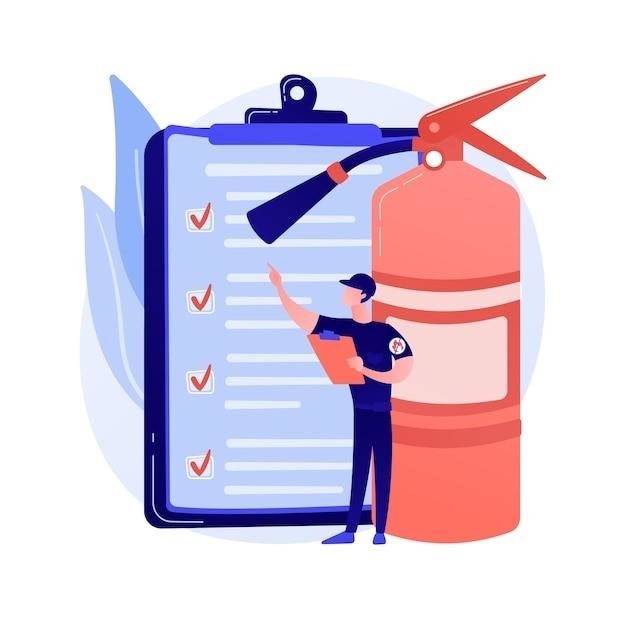Ford Ranger Wiring Diagrams⁚ A Comprehensive Guide
Ford Ranger wiring diagrams are essential for understanding the electrical system of your truck. They provide a visual representation of the wiring‚ components‚ and connections‚ allowing you to diagnose issues‚ perform repairs‚ and even make modifications. Whether you’re a seasoned mechanic or a DIY enthusiast‚ having access to the correct wiring diagrams is crucial for a successful project.

Introduction
Delving into the intricate world of your Ford Ranger’s electrical system can be both rewarding and daunting. Understanding how the various components are interconnected is paramount for troubleshooting issues‚ performing repairs‚ or even customizing your truck’s functionality. This is where Ford Ranger wiring diagrams come into play. These visual blueprints offer a comprehensive guide to the electrical pathways‚ components‚ and connections within your vehicle‚ making complex tasks much more manageable.
Imagine being able to trace the flow of electricity from the battery to the headlights‚ or identify the specific wire responsible for powering your radio. These diagrams are like roadmaps for your truck’s electrical system‚ providing clarity and guidance throughout any repair or modification process. Whether you’re a seasoned mechanic‚ a DIY enthusiast‚ or simply someone who likes to understand how things work‚ mastering the art of reading Ford Ranger wiring diagrams can be a valuable skill.
This guide aims to equip you with the knowledge and resources you need to confidently navigate the world of Ford Ranger wiring diagrams. We’ll explore their importance‚ where to find them‚ how to interpret them‚ and the essential safety precautions to take when working with electrical systems. So‚ buckle up and prepare to unlock the secrets of your Ford Ranger’s electrical heart.
Why Wiring Diagrams are Crucial
Ford Ranger wiring diagrams are the unsung heroes of automotive repair and customization. While they might seem like a collection of lines and symbols‚ they hold the key to understanding the intricate web of electrical connections that power your truck. These diagrams are more than just pretty pictures; they are essential tools for anyone who wants to work on their Ford Ranger’s electrical system‚ whether it’s diagnosing a faulty light‚ installing a new stereo‚ or adding aftermarket accessories.
Think of a wiring diagram as a roadmap for your truck’s electrical system. It clearly identifies every wire‚ connector‚ and component‚ allowing you to trace the flow of electricity from the battery to the headlights‚ the ignition to the radio‚ and everything in between. This level of detail is crucial for pinpointing the source of electrical problems‚ ensuring correct connections when making modifications‚ and avoiding potentially dangerous situations.
Without wiring diagrams‚ troubleshooting electrical issues becomes a guessing game‚ often leading to wasted time‚ frustration‚ and even damage to your truck. By providing a visual representation of the electrical pathways‚ these diagrams empower you to approach electrical repairs with confidence‚ knowing exactly where to look and what to expect. In short‚ Ford Ranger wiring diagrams are not just helpful; they are indispensable for anyone who wants to work on their truck’s electrical system safely and efficiently.
Finding Ford Ranger Wiring Diagrams
Obtaining the right Ford Ranger wiring diagrams can feel like a treasure hunt‚ but with a little know-how‚ you can navigate the digital landscape and unearth the information you need. The first step is to identify your Ford Ranger’s specific year‚ model‚ and engine‚ as wiring configurations can vary significantly between different generations and trims. Once you have this information‚ you can embark on your quest for the elusive diagrams.
There are several avenues to explore. You can start with the official Ford website‚ where you might find downloadable wiring diagrams for certain models. Alternatively‚ you can delve into the vast archives of online forums dedicated to Ford Rangers‚ where fellow enthusiasts often share their own experiences and resources‚ including wiring diagrams.
If your search leads you to dead ends‚ consider contacting a local Ford dealership or an automotive repair shop specializing in Ford Rangers. They might have access to service manuals containing wiring diagrams or be able to point you in the right direction. Remember‚ persistence is key‚ and with a little effort‚ you’ll find the Ford Ranger wiring diagrams that will guide you towards a successful repair or modification project.
Online Resources
The internet offers a treasure trove of Ford Ranger wiring diagrams‚ but navigating this vast digital landscape can be daunting. However‚ with a little patience and the right search strategies‚ you can uncover the information you need. One of the most valuable resources is the Ford Trucks Club forum‚ where dedicated enthusiasts share their knowledge and resources‚ often including wiring diagrams for various Ford Ranger models.
Another promising avenue is the vast world of online automotive repair manuals‚ where you might find comprehensive documentation covering wiring diagrams for specific Ford Ranger years. Websites like AllCarManuals.com offer a wealth of information‚ including workshop manuals that may contain wiring diagrams. Remember to be specific in your search‚ using keywords like “Ford Ranger wiring diagram PDF” or “Ford Ranger electrical wiring diagram” to refine your results.
Be cautious‚ however‚ of websites offering free downloads that may contain inaccurate or incomplete information. Verify the source of the diagrams and check for user reviews or testimonials before relying on any particular website. When in doubt‚ consult a reputable online automotive resource or contact a Ford dealership for confirmation.
Ford Ranger Wiring Diagram PDFs
The format of choice for many automotive enthusiasts is the PDF (Portable Document Format). PDF files offer several advantages‚ including portability‚ searchability‚ and the ability to print high-quality diagrams. When searching for Ford Ranger wiring diagrams in PDF format‚ you’ll encounter various sources‚ each with its strengths and weaknesses.
Some websites offer free downloads of PDF wiring diagrams‚ but be sure to verify the source and accuracy of the information. Paid resources‚ such as online automotive repair manuals‚ often provide comprehensive PDF wiring diagrams for various Ford Ranger models and years. These resources may also offer detailed explanations and troubleshooting guides‚ making them valuable tools for serious DIY enthusiasts.
When downloading PDF wiring diagrams‚ ensure they are compatible with your computer and printing equipment. Some PDF files may require specific software or plugins to view or print correctly. Always check the file size and format before downloading to ensure a smooth experience.
Specific Model Years
The Ford Ranger has been a popular pickup truck for decades‚ with various model years and engine options. This wide range of models means that wiring diagrams can vary significantly between years. Therefore‚ it is crucial to specify the exact model year of your Ford Ranger when searching for wiring diagrams.
For example‚ a 1991 Ford Ranger will have a completely different wiring system than a 2001 or a 2022 model. The engine‚ transmission‚ and other components have evolved over time‚ leading to changes in the electrical system.
When searching for wiring diagrams‚ always include the year of your Ford Ranger in your search query. This will help you find the most relevant and accurate information. You can also use the vehicle identification number (VIN) to identify the exact specifications of your truck‚ ensuring you get the right wiring diagrams for your specific model.

Ford Ranger 1991 Wiring Diagrams
The 1991 Ford Ranger was a popular model year‚ known for its reliability and versatility. The 1991 Ranger featured a range of engine options‚ including the 2.3L four-cylinder and the 2.9L V6. Finding wiring diagrams for a 1991 Ford Ranger can be a bit challenging‚ but several resources are available online.
One popular source is the Ford-Trucks-Club forum‚ where you can find a collection of wiring diagrams for various Ford models‚ including the Ranger. You can also search for “1994 System Wiring Diagrams Ford ⎻ Explorer” online‚ as these diagrams often include information relevant to the 1991 Ranger.
When searching for wiring diagrams for your 1991 Ford Ranger‚ be sure to specify the engine size and any other relevant details‚ such as the trim level or options. This will help you find the most accurate and relevant wiring diagrams for your specific vehicle.
Ford Ranger 2001 Wiring Diagrams
The 2001 Ford Ranger was a significant year for the model‚ featuring a redesigned exterior and interior‚ along with improved engine options. Finding wiring diagrams for a 2001 Ford Ranger can be achieved through various online resources and specific PDF files.
A helpful starting point is to search online for “2001 ford ranger wiring diagram pdf;” Many websites offer free downloads of wiring diagrams for various Ford models‚ including the Ranger. Some popular websites include Ford-Trucks-Club‚ which often features a collection of wiring diagrams for various Ford models‚ including the Ranger. Additionally‚ online platforms like Skylikes Yahoo Image Search Results can be helpful in finding free wiring diagrams for 2005 Ford Rangers‚ which can be useful for cross-referencing information.
When searching for wiring diagrams‚ it’s essential to specify the engine size and any other relevant details‚ such as trim level or options‚ to ensure you find the most accurate and relevant diagrams for your specific 2001 Ford Ranger.
Ford Ranger 2022 Wiring Diagrams
The 2022 Ford Ranger represents a modern iteration of the popular pickup truck‚ featuring advanced technology and refined design. Finding the appropriate wiring diagrams for this model can be crucial for troubleshooting issues‚ modifying the electrical system‚ or understanding the layout of various components.
While free online resources like Ford-Trucks-Club and Skylikes Yahoo Image Search Results can be helpful for older models‚ accessing wiring diagrams for the 2022 Ranger might require more specific sources. It’s likely that Ford’s official website or authorized dealerships provide access to detailed wiring diagrams for the 2022 Ranger. These sources may offer downloadable PDFs or online interactive diagrams that provide a comprehensive overview of the vehicle’s electrical system.
Additionally‚ specialized automotive repair manuals‚ often available in both physical and digital formats‚ can contain detailed wiring diagrams specifically for the 2022 Ford Ranger. These manuals are designed for professional mechanics‚ but they can also be valuable resources for DIY enthusiasts seeking accurate and comprehensive information.
Understanding Wiring Diagrams
Ford Ranger wiring diagrams‚ whether found online or in physical manuals‚ are designed to provide a clear and concise representation of the vehicle’s electrical system. They use standardized symbols and conventions to illustrate the flow of electricity‚ the location of components‚ and the connections between different parts of the system.
A typical wiring diagram will show the various circuits‚ including power supply lines‚ ground connections‚ and signal pathways. Each component‚ such as a fuse‚ relay‚ switch‚ or sensor‚ will be represented by a specific symbol. Lines connecting these symbols represent the wires carrying electrical current. Numbers and letters may be used to identify specific wires and connectors‚ allowing you to trace the path of electricity through the system.
Understanding the key elements of a wiring diagram‚ such as circuit labels‚ connector pin designations‚ and color-coded wires‚ is crucial for interpreting the information presented. It’s important to note that Ford Ranger wiring diagrams may vary depending on the model year‚ engine size‚ and specific options. Therefore‚ it’s essential to use the correct diagram for your particular vehicle to ensure accurate information and avoid potential problems.
Safety Precautions
Working with electrical systems in a Ford Ranger requires caution and adherence to safety practices to prevent injury or damage. Before attempting any electrical repairs or modifications‚ disconnect the battery to avoid accidental shocks or short circuits. Always use insulated tools and wear appropriate safety gear‚ such as gloves and eye protection. Avoid working on the electrical system while the vehicle is running‚ as this could lead to serious injury.
When using Ford Ranger wiring diagrams‚ ensure you understand the meaning of all symbols and conventions. Misinterpreting a diagram can lead to incorrect wiring or component connections‚ causing malfunctions or even damage to the electrical system. If you are unsure about any aspect of the wiring diagram or the electrical repair process‚ consult a qualified mechanic or electrician for assistance.
In addition to the general safety precautions‚ specific considerations may apply depending on the specific area of the electrical system you are working on. For example‚ when working on the fuel system‚ be aware of the risks associated with gasoline and ensure proper ventilation. Always follow the manufacturer’s instructions and warnings provided in the vehicle’s owner’s manual and any relevant repair documents.






















